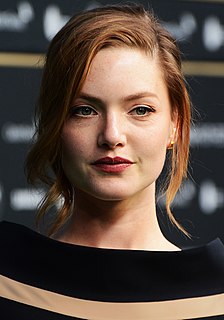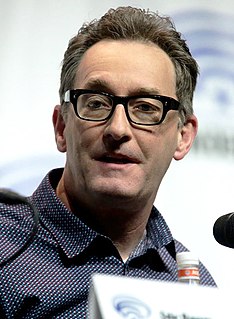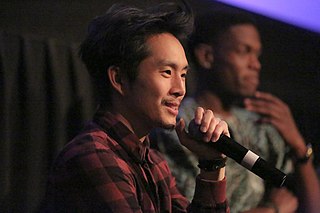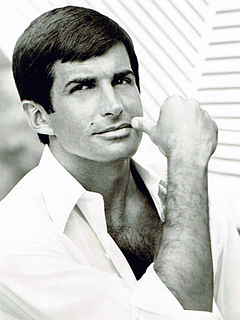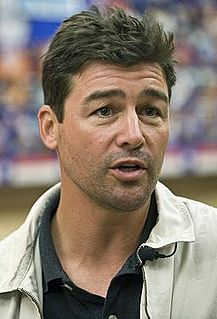A Quote by Steve Buscemi
I always find that it's when a script is not detailed, then I have to do more work as an actor.
Related Quotes
There should always be that leeway because if you think of your character as sort of absolutely fixed, then you just try and find actors to come and do exactly that thing, then you're not gonna be working with that actor's own set of internal impulses and who they are, so the best work is always a coming together of the actor and the character.
When you try to be true to the script, changes occur. A script is there to show us a certain direction. But when you actually have the actors in and you start shooting the movie, you have the actor say a line and it doesn't sound right so you change it and make it different. It's the script that gives birth to these changes and the more you try to stay true to the script, the more that happens.
I'd like to work more as a director. It's distracting being an actor, because - there's a lot of reasons. You find out you're going to work about six months before you start shooting, and then there's prep and there's post afterward, and there's stuff to do, and then suddenly you've gone a year without directing. There's a part of me that has to not be tempted by that in order to commit more to the directing. Honestly, the big reason for me to act is to observe other directors and learn from them. That seems to be the biggest draw.
The truth is, an actor's performance is the result of work by a lot more people than just the actor. When you see that character portrayed up on screen, there is the work certainly of the actor, but there's the work of the editor, there's the work of what the camera was doing. What the music was doing, all of the above.
All directors make films in individual ways. But the classical kind of view of filmmaking is that you have a script, and it's very linear. There's a script, then you're going to shoot the script ,and then you cut that, and then that's the end of the film. And that's never really been how I've seen it.





